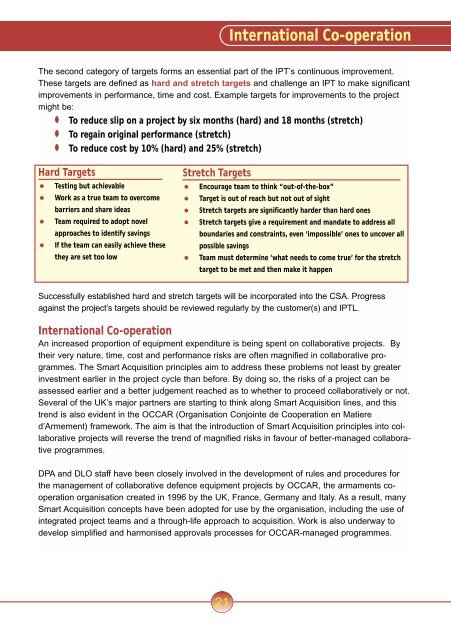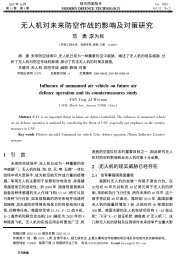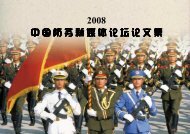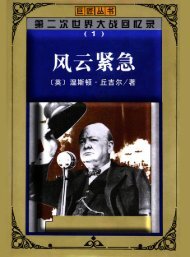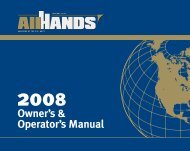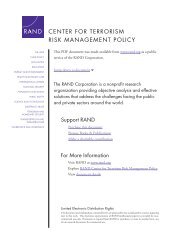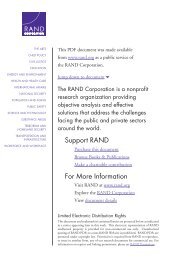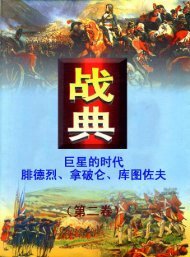The Acquisition Handbook
The Acquisition Handbook
The Acquisition Handbook
- No tags were found...
You also want an ePaper? Increase the reach of your titles
YUMPU automatically turns print PDFs into web optimized ePapers that Google loves.
International Co-operation<strong>The</strong> second category of targets forms an essential part of the IPT’s continuous improvement.<strong>The</strong>se targets are defined as hard and stretch targets and challenge an IPT to make significantimprovements in performance, time and cost. Example targets for improvements to the projectmight be:To reduce slip on a project by six months (hard) and 18 months (stretch)To regain original performance (stretch)• To reduce cost by 10% (hard) and 25% (stretch)Hard Targets$ Testing but achievable$ Work as a true team to overcomebarriers and share ideas$ Team required to adopt novelapproaches to identify savings$ If the team can easily achieve thesethey are set too lowStretch Targets$ Encourage team to think “out-of-the-box”$ Target is out of reach but not out of sight$ Stretch targets are significantly harder than hard ones$ Stretch targets give a requirement and mandate to address allboundaries and constraints, even ‘impossible’ ones to uncover allpossible savings$ Team must determine ‘what needs to come true’ for the stretchtarget to be met and then make it happenSuccessfully established hard and stretch targets will be incorporated into the CSA. Progressagainst the project’s targets should be reviewed regularly by the customer(s) and IPTL.International Co-operationAn increased proportion of equipment expenditure is being spent on collaborative projects. Bytheir very nature, time, cost and performance risks are often magnified in collaborative programmes.<strong>The</strong> Smart <strong>Acquisition</strong> principles aim to address these problems not least by greaterinvestment earlier in the project cycle than before. By doing so, the risks of a project can beassessed earlier and a better judgement reached as to whether to proceed collaboratively or not.Several of the UK’s major partners are starting to think along Smart <strong>Acquisition</strong> lines, and thistrend is also evident in the OCCAR (Organisation Conjointe de Cooperation en Matiered’Armement) framework. <strong>The</strong> aim is that the introduction of Smart <strong>Acquisition</strong> principles into collaborativeprojects will reverse the trend of magnified risks in favour of better-managed collaborativeprogrammes.DPA and DLO staff have been closely involved in the development of rules and procedures forthe management of collaborative defence equipment projects by OCCAR, the armaments cooperationorganisation created in 1996 by the UK, France, Germany and Italy. As a result, manySmart <strong>Acquisition</strong> concepts have been adopted for use by the organisation, including the use ofintegrated project teams and a through-life approach to acquisition. Work is also underway todevelop simplified and harmonised approvals processes for OCCAR-managed programmes.21


